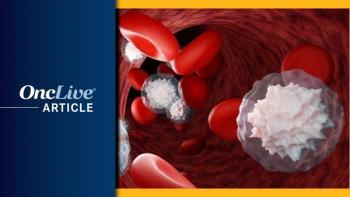
Feasibility of TKI Discontinuation in CML
For High-Definition, Click
A number of clinical trials in the United States are examining the possibility of discontinuing treatment with a TKI in patients with chronic myeloid leukemia (CML) who have had long-term remissions, explains Stuart L. Goldberg, MD. These studies should be considered for younger patients who don’t want to be on long-term therapy and for older patients experiencing toxicities on therapy.
Although there are several studies assessing discontinuation, the population examined in each trial is relatively small, cautions B. Douglas Smith, MD. While several factors predict maintenance of remission after discontinuation, Goldberg describes duration of remission as a key positive indicator. Other reported factors include age and digital-PCR results (Mori S, et al. Blood. 2014;124:abstract 813) and number and function of natural killer (NK)-cells (Ilander MM, et al. Blood. 2014;124:abstract 812).
Only a subgroup of patients may be eligible for TKI discontinuation, Goldberg cautions. Of eligible patients, not all will wish to discontinue therapy. Monthly monitoring is key to this discontinuation strategy, Goldberg explains, making patient commitment essential. However, many patients elect to remain on therapy, notes Elias Jabbour, MD.



































